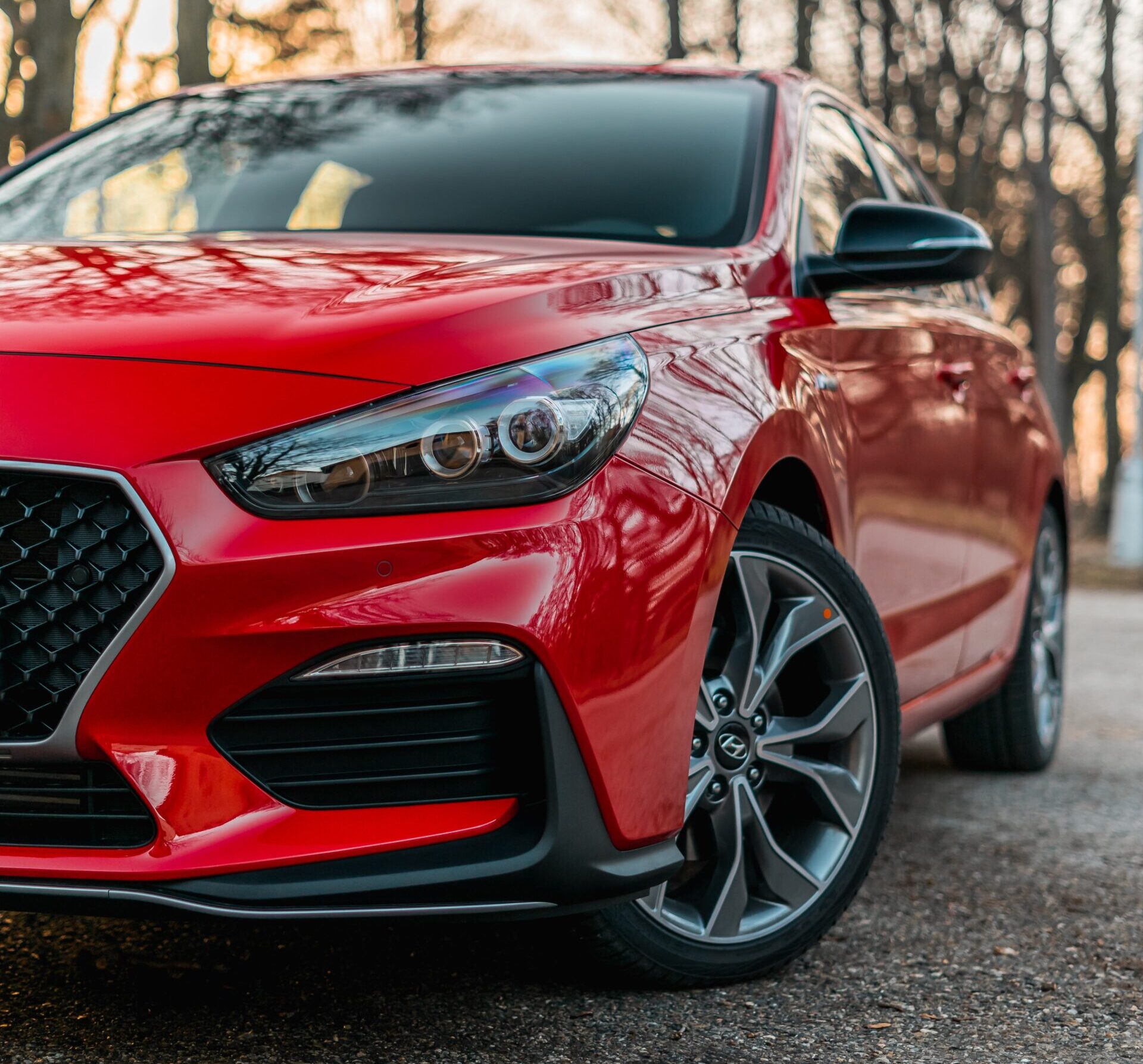Support our educational content for free when you purchase through links on our site. Learn more
[2023] Is January a Good Time to Lease a Car?
Are you considering leasing a car in the new year? If so, you might be wondering if January is a good time to lease a car. In this comprehensive guide, we will explore the advantages and disadvantages of leasing a car in January, as well as provide you with some quick tips and facts to help you make an informed decision. So, let’s dive in and find out if January is indeed a good time to lease a car!
Table of Contents
- Quick Answer
- Quick Tips and Facts
- Background
- The Best Times to Lease a Car
- Tips for Negotiating Your Car Lease
- Is Leasing a Car a Good Idea?
- What Credit Score Do You Need to Lease a Car?
- Getting the Best Auto Lease Terms
- Special Lease Offers in January
- FAQ
- Conclusion
- Recommended Links
- Reference Links
Quick Answer
Yes, January can be a good time to lease a car. As the new year begins, car dealerships often offer attractive lease deals to kickstart their sales. Additionally, January is typically a slow month for car sales, which means dealerships may be more willing to negotiate and offer better lease terms. However, it’s important to do your research, compare offers, and negotiate to ensure you’re getting the best deal possible.
Quick Tips and Facts:
- Research and compare lease deals from different dealerships.
- Negotiate the lease terms, including the monthly payment, mileage allowance, and lease duration.
- Consider leasing a car from the previous model year to take advantage of discounts.
- Check your credit score before applying for a lease to ensure you qualify for the best rates.
- Understand the terms and conditions of the lease agreement, including any fees or penalties.
Now, let’s delve deeper into the topic and explore the background and factors that make January a potentially good time to lease a car.
Background
Car leasing has become an increasingly popular option for many consumers. Leasing allows you to drive a new car without the long-term commitment of ownership. Instead of purchasing a car outright, you pay for the use of the vehicle over a fixed period, typically two to four years. At the end of the lease term, you can return the car or choose to purchase it.
Leasing a car offers several benefits, including lower monthly payments compared to financing a purchase, the ability to drive a new car every few years, and fewer maintenance responsibilities. However, it’s important to consider the potential drawbacks, such as mileage restrictions, wear and tear fees, and the fact that you don’t own the car at the end of the lease.
Now that we have a better understanding of car leasing, let’s explore the best times to lease a car and how January fits into the equation.
The Best Times to Lease a Car
To determine if January is a good time to lease a car, it’s helpful to understand the best times throughout the year to secure a favorable lease deal. While there is no one-size-fits-all answer, certain periods tend to offer more attractive lease terms. Here are some of the most affordable times to lease a car:
-
End of the Year: The end of the year, particularly December, is often a great time to lease a car. Dealerships are eager to meet their annual sales targets and clear out inventory to make room for new models. This can result in generous lease incentives and discounts.
-
End of the Month: Many dealerships have monthly sales targets, and leasing a car towards the end of the month can work in your favor. Salespeople may be more motivated to negotiate and offer better lease terms to meet their quotas.
-
End of the Quarter: Similar to the end of the month, the end of each quarter (March, June, September, and December) can be a good time to lease a car. Dealerships often have sales goals to meet for each quarter, and you may find more favorable lease deals during these periods.
-
When New Models Are Released: When new models are released, dealerships may offer attractive lease deals on the previous year’s models to make room for the latest inventory. This can be an excellent opportunity to lease a car at a discounted price.
-
Holidays: Holidays such as Memorial Day, Labor Day, and Black Friday are known for offering significant discounts and incentives on various products, including cars. Keep an eye out for holiday promotions and lease specials.
-
January: As the new year begins, car dealerships often offer enticing lease deals to kickstart their sales. January is typically a slow month for car sales, which means dealerships may be more willing to negotiate and offer better lease terms.
While these periods generally offer favorable lease terms, it’s important to note that deals can vary depending on the specific dealership, location, and market conditions. It’s always a good idea to research and compare offers from multiple dealerships to ensure you’re getting the best deal possible.
Tips for Negotiating Your Car Lease
When leasing a car, negotiation is key to securing the best lease terms. Here are some tips to help you negotiate your car lease effectively:
-
Research and Compare: Before visiting a dealership, research the make and model you’re interested in leasing. Compare lease offers from different dealerships to get an idea of the average lease terms and pricing.
-
Know Your Credit Score: Your credit score plays a significant role in lease approval and the interest rate you’ll receive. Check your credit score before applying for a lease and take steps to improve it if necessary.
-
Consider Multiple Dealerships: Visit multiple dealerships and inquire about their lease offers. This will give you leverage during negotiations and allow you to compare offers to ensure you’re getting the best deal.
-
Negotiate the Price: Just like when buying a car, you can negotiate the price when leasing. Research the fair market value of the car you want to lease and use that information to negotiate a lower price.
-
Negotiate Lease Terms: In addition to the price, negotiate other lease terms such as the mileage allowance, lease duration, and any additional fees. Be prepared to walk away if the terms are not favorable.
-
Consider Multiple Models: If you’re flexible with the make and model of the car you want to lease, consider exploring multiple options. Some models may have better lease deals or incentives than others.
Remember, negotiation is a two-way street. Be respectful but firm in your negotiations, and don’t be afraid to walk away if the terms are not to your liking. By doing your research and being prepared, you can increase your chances of securing a favorable lease deal.
Is Leasing a Car a Good Idea?
Leasing a car can be a good idea for some individuals, depending on their specific needs and preferences. Here are some of the benefits and drawbacks of leasing a car to help you decide if it’s the right choice for you:
Benefits of Leasing a Car:
- Lower Monthly Payments: Lease payments are typically lower than loan payments when financing a car purchase. This can free up your monthly budget for other expenses.
- Driving a New Car: Leasing allows you to drive a new car every few years, which means you can enjoy the latest features and technology without the long-term commitment of ownership.
- Fewer Maintenance Headaches: Leased cars are typically covered by the manufacturer’s warranty, which can help reduce repair and maintenance costs.
- Lower Down Payment: Leasing often requires a lower down payment compared to purchasing a car, making it more accessible for individuals with limited upfront funds.
- No Need to Sell the Car: At the end of the lease term, you can simply return the car to the dealership without the hassle of selling it.
Drawbacks of Leasing a Car:
- Mileage Restrictions: Most lease agreements come with mileage restrictions. Exceeding the allotted mileage can result in additional fees.
- Wear and Tear Fees: Lease agreements typically require you to return the car in good condition. Excessive wear and tear may result in additional charges.
- No Ownership: When you lease a car, you don’t own it. This means you won’t have any equity in the vehicle and won’t be able to sell it for profit.
- Higher Insurance Costs: Lease agreements often require higher insurance coverage, which can increase your monthly insurance premiums.
- Higher Total Cost: While lease payments may be lower than loan payments, leasing a car over an extended period can result in a higher total cost compared to purchasing a car.
Before deciding whether to lease a car, consider your personal circumstances, budget, and driving habits. If you prefer driving a new car every few years and value lower monthly payments, leasing may be a good option for you. However, if you prefer long-term ownership and the ability to customize your vehicle, purchasing a car may be a better choice.
What Credit Score Do You Need to Lease a Car?
Your credit score plays a significant role in leasing a car. A higher credit score generally translates to more favorable lease terms, including lower interest rates and higher approval chances. While specific credit score requirements can vary between lenders and dealerships, a good credit score is generally defined as a FICO® Score of at least 670.
Having a good credit score demonstrates to lenders that you are a responsible borrower and are likely to make your lease payments on time. It’s important to check your credit score before applying for a lease and take steps to improve it if necessary. Here are some tips to help you improve your credit score:
- Pay Bills on Time: Make all your payments, including credit card bills, loan payments, and utility bills, on time. Late payments can negatively impact your credit score.
- Reduce Credit Card Balances: Pay down your credit card balances to reduce your credit utilization ratio. Aim to keep your credit card balances below 30% of your available credit.
- Avoid Opening New Credit Accounts: Opening multiple new credit accounts within a short period can lower your credit score. Only apply for new credit when necessary.
- Check Your Credit Report: Regularly review your credit report for errors or inaccuracies. Dispute any incorrect information to ensure your credit score is based on accurate data.
- Keep Old Credit Accounts Open: Closing old credit accounts can shorten your credit history and lower your credit score. Keep your old accounts open, even if you’re not actively using them.
By maintaining a good credit score, you can increase your chances of qualifying for the best lease terms and securing a more affordable lease deal.
Getting the Best Auto Lease Terms
To get the best auto lease terms, it’s important to be prepared and knowledgeable. Here are some tips to help you secure the most favorable lease terms:
-
Research and Compare: Research the make and model you’re interested in leasing and compare lease offers from different dealerships. Look for any special promotions or incentives that may be available.
-
Understand the Lease Terminology: Familiarize yourself with common lease terminology, such as the capitalized cost, money factor, residual value, and acquisition fee. Understanding these terms will help you navigate the lease negotiation process.
-
Negotiate the Price: Just like when buying a car, you can negotiate the price when leasing. Research the fair market value of the car you want to lease and use that information to negotiate a lower price.
-
Consider Multiple Lease Terms: When negotiating, consider multiple lease terms, such as the lease duration, mileage allowance, and any additional fees. Adjusting these terms can impact your monthly payment and overall lease cost.
-
Read and Understand the Lease Agreement: Before signing the lease agreement, carefully read and understand all the terms and conditions. Pay attention to any fees, penalties, or restrictions that may apply.
-
Consider Lease Protection Products: Lease protection products, such as gap insurance and excess wear and tear coverage, can provide added peace of mind during the lease term. Evaluate these products and decide if they are worth the additional cost.
Remember, leasing a car is a financial commitment, and it’s important to thoroughly understand the terms and conditions before signing the lease agreement. If you’re unsure about any aspect of the lease, don’t hesitate to ask questions and seek clarification from the dealership.
Special Lease Offers in January
As mentioned earlier, January can be a good time to lease a car due to dealerships’ desire to kickstart their sales in the new year. To attract customers, dealerships often offer special lease offers and incentives. These offers can vary depending on the dealership and location, but here are some examples of special lease offers you may come across in January:
- Reduced Monthly Payments: Dealerships may offer lower monthly lease payments or discounted money factors to make leasing more affordable.
- Cash Incentives: Some dealerships may provide cash incentives or rebates that can be applied towards the lease payment or used as a down payment.
- Zero or Low Down Payment: In an effort to attract customers, dealerships may offer zero or low down payment options for lease agreements.
- Special Lease Terms: Dealerships may introduce special lease terms, such as longer lease durations or higher mileage allowances, to accommodate customers’ needs.
It’s important to note that special lease offers can vary between dealerships and may be subject to certain conditions or eligibility requirements. Be sure to read the fine print and understand all the terms and conditions before taking advantage of any special lease offer.
FAQ
What is the best month to lease a vehicle?
While there is no definitive answer to this question, certain months tend to offer more favorable lease terms. The end of the year, particularly December, is often considered a good time to lease a vehicle. Dealerships are eager to meet their annual sales targets and clear out inventory, which can result in attractive lease incentives and discounts. Additionally, the end of each quarter and when new models are released can also offer favorable lease terms.
Read more about “… What are 3 Advantages of Leasing a Car Instead of Buying One?”
Why are car leases so expensive now 2023?
Car leases may appear more expensive in 2023 due to various factors, including increased vehicle prices, supply chain disruptions, and higher demand for certain models. The global semiconductor shortage has impacted the production of new vehicles, leading to reduced inventory and higher prices. Additionally, increased demand for SUVs and trucks has driven up prices for these popular models. However, it’s important to note that lease prices can vary depending on the specific make, model, and dealership. It’s always a good idea to research and compare lease offers to ensure you’re getting the best deal possible.
Read more about “… What Month Are Car Leases Cheapest?”
Is leasing a car a good idea in 2023?
Leasing a car can be a good idea in 2023, depending on your personal circumstances and preferences. Leasing offers several benefits, including lower monthly payments, the ability to drive a new car every few years, and fewer maintenance responsibilities. However, it’s important to consider the potential drawbacks, such as mileage restrictions, wear and tear fees, and the fact that you don’t own the car at the end of the lease. Before deciding whether to lease a car, evaluate your budget, driving habits, and long-term goals to determine if leasing aligns with your needs.
Read more about “… Is it a Good Idea to Lease a Car? Pros and Cons Uncovered”
Is end of year the best time to lease a car?
The end of the year, particularly December, is often considered a good time to lease a car. Dealerships are eager to meet their annual sales targets and clear out inventory, which can result in attractive lease incentives and discounts. Additionally, the end of each quarter and when new models are released can also offer favorable lease terms. However, it’s important to note that lease deals can vary between dealerships and depend on market conditions. It’s always a good idea to research and compare offers to ensure you’re getting the best deal possible.
Read more about “… How much is a lease on a $45,000 car?”
Conclusion
In conclusion, January can be a good time to lease a car. As the new year begins, dealerships often offer attractive lease deals to kickstart their sales. January is typically a slow month for car sales, which means dealerships may be more willing to negotiate and offer better lease terms. However, it’s important to do your research, compare offers, and negotiate to ensure you’re getting the best deal possible.
Remember to research and compare lease offers from different dealerships, negotiate the lease terms, and understand the terms and conditions of the lease agreement. Consider your personal circumstances, budget, and driving habits before deciding whether leasing a car is the right choice for you.
If you’re interested in learning more about car leases and finding the best lease deals, check out the following links:
For more information on car leasing and related topics, you can refer to the following reputable sources:
Remember, when leasing a car, it’s important to consider your personal needs, budget, and long-term goals. By doing your research, comparing offers, and negotiating, you can increase your chances of securing a favorable lease deal. Happy leasing!





